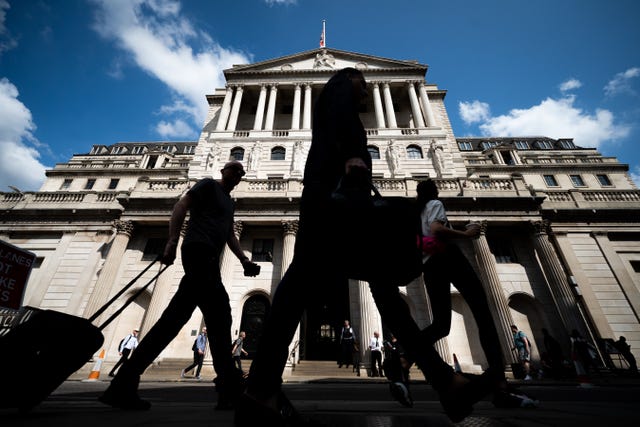
UK inflation is expected to swing back above the Bank of England’s target due to higher energy prices.
The Office for National Statistics (ONS) will unveil the latest monthly Consumer Prices Index (CPI) reading on Wednesday morning.
The data is expected to show a significant rebound in inflation in October after it dropped to a three-year-low of 1.7% in the previous month.
The economic data – which shows how much the prices of goods and services have increased or decreased – is predicted to reveal inflation of 2.2% for September, according to a consensus of economists.
This would see it return to the level witnessed in July and August, and would be in line with recent forecasts by the Bank of England.

Economists have said an increase is likely to have been driven by higher energy bills after an increase in the price cap for households last month.
In October, average household energy bills increased by £149 a year after regulator Ofgem raised the cap from £1,568 for a typical dual fuel household in England, Scotland and Wales to £1,717. This represents a roughly 10% rise.
Economists at Pantheon Macroeconomics have also suggested that a predicted rebound in air fares will contribute to a higher rate of inflation.
The increases will be slightly offset by a fall in motor fuel prices and an easing in food inflation, the experts added.
The inflation data for October is therefore likely to surpass the 2% target rate for inflation set by the Bank of England and the Government.
This could put some pressure on hopes that policymakers at the central bank will continue to cut interest rates, after reducing the base rate to 4.75% earlier this month.
High interest rates have been used by the Bank of England to put pressure on spending demand from consumer and businesses and help bring down inflation, after it soared as high as 11.1% two years ago.
Rate-setters on the Bank’s monetary policy committee (MPC) have since voted on two occasions to reduce rates after bringing inflation down to target levels earlier this year.
It comes as a raft of economists have reduced their predictions for interest rate cuts over the next year, with some indicating policy measures in the Budget could contribute to increased inflation in the short term.


Why are you making commenting on The National only available to subscribers?
We know there are thousands of National readers who want to debate, argue and go back and forth in the comments section of our stories. We’ve got the most informed readers in Scotland, asking each other the big questions about the future of our country.
Unfortunately, though, these important debates are being spoiled by a vocal minority of trolls who aren’t really interested in the issues, try to derail the conversations, register under fake names, and post vile abuse.
So that’s why we’ve decided to make the ability to comment only available to our paying subscribers. That way, all the trolls who post abuse on our website will have to pay if they want to join the debate – and risk a permanent ban from the account that they subscribe with.
The conversation will go back to what it should be about – people who care passionately about the issues, but disagree constructively on what we should do about them. Let’s get that debate started!
Callum Baird, Editor of The National
Comments: Our rules
We want our comments to be a lively and valuable part of our community - a place where readers can debate and engage with the most important local issues. The ability to comment on our stories is a privilege, not a right, however, and that privilege may be withdrawn if it is abused or misused.
Please report any comments that break our rules.
Read the rules hereLast Updated:
Report this comment Cancel